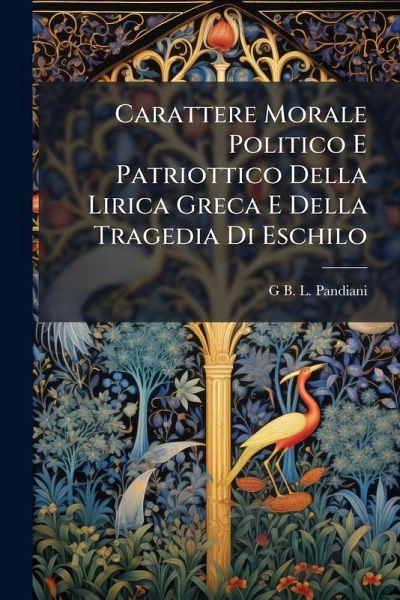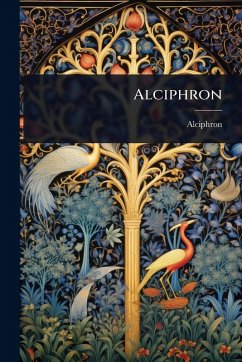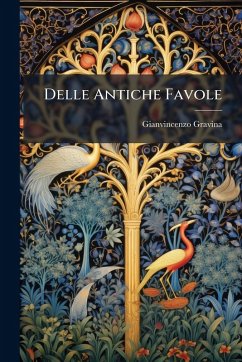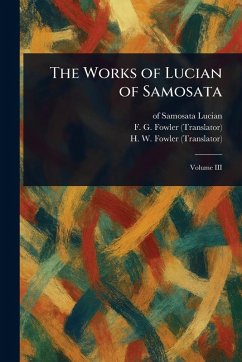
Carattere Morale Politico E Patriottico Della Lirica Greca E Della Tragedia Di Eschilo

PAYBACK Punkte
9 °P sammeln!
Carattere Morale Politico E Patriottico Della Lirica Greca E Della Tragedia Di Eschilo examines the moral, political, and patriotic dimensions of Greek lyric poetry and the tragedies of Aeschylus. Authored by G B. L. Pandiani, this work delves into the profound influence of these ancient literary forms on the character and values of Greek society. Through detailed analysis, Pandiani explores how the themes of morality, politics, and patriotism are interwoven within the verses of lyric poets and the dramatic narratives of Aeschylus. This study offers insights into the ways in which these litera...
Carattere Morale Politico E Patriottico Della Lirica Greca E Della Tragedia Di Eschilo examines the moral, political, and patriotic dimensions of Greek lyric poetry and the tragedies of Aeschylus. Authored by G B. L. Pandiani, this work delves into the profound influence of these ancient literary forms on the character and values of Greek society. Through detailed analysis, Pandiani explores how the themes of morality, politics, and patriotism are interwoven within the verses of lyric poets and the dramatic narratives of Aeschylus. This study offers insights into the ways in which these literary works shaped the cultural and ethical landscape of ancient Greece. This book provides valuable perspectives for scholars and enthusiasts interested in classical literature, ancient history, and the enduring legacy of Greek thought. It remains relevant for understanding the foundations of Western civilization and the timeless power of dramatic and poetic expression. This work has been selected by scholars as being culturally important, and is part of the knowledge base of civilization as we know it. This work was reproduced from the original artifact, and remains as true to the original work as possible. Therefore, you will see the original copyright references, library stamps (as most of these works have been housed in our most important libraries around the world), and other notations in the work. This work is in the public domain in the United States of America, and possibly other nations. Within the United States, you may freely copy and distribute this work, as no entity (individual or corporate) has a copyright on the body of the work. As a reproduction of a historical artifact, this work may contain missing or blurred pages, poor pictures, errant marks, etc. Scholars believe, and we concur, that this work is important enough to be preserved, reproduced, and made generally available to the public. We appreciate your support of the preservation process, and thank you for being an important part of keeping this knowledge alive and relevant.












